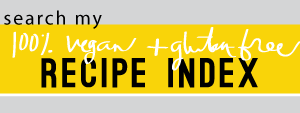Dinner last night: herb mashed potatoes, white bean salad, homemade whole wheat bread (I made bread yesterday for the first time in almost a year!), and of course a nice big salad with some creamy non-dairy ranch.
Why Shouldn’t I Drink Cow’s Milk? Why Is Cow’s Milk Bad For Me?
Questions, you may be asking yourself. You’ve come to the perfect place, I’ve got some answers, or at least some insights, because the topic of today’s post is: why I don’t drink cow’s milk (more on plant-based milks here and here).
I’ve addressed some of the issues surrounding cow’s milk before, but I want to go into greater detail about why I don’t drink milk. Emotional and devise issue for some, I know, but let me begin by sharing an experience.
About 3 years ago….
I wanted pizza. It had been at least a month now. I hadn’t consumed one thing that contained the slightest hint of any dairy product or meat. I was on a “vegan fast.” Just to see if I could do it.
So there I a was, pining for something cheesy, and pizza was my first choice. I was also 4 months pregnant, and as a pregnant person, I was subject to cravings. All of the time. So now I should just listen to my body, give it what it wants. Okay. So I order a meatless pizza, covered with an abundance of wonderfully greasy pizza sauce and cheese.
Fast forward, next morning and afternoon. It was quite embarrassing actually. I had gone to a workshop with my husband and we had been visiting different sites, touring different things. And that is when it hit me….may I say it? Diarrhea. Bad. I had to go to the restroom at least 6 times within an hour. As I sat in an outhouse (we were up a canyon in the mountains), I vowed in earnest that I would never put myself in this situation again. My body clearly did not react well to cheese. This had not been the first time I had taken cheese out of my diet, then eaten “just a little bit.”
Somehow I had had self-induced amnesia and had forgotten the bloating, cramping and diarrhea or the opposite, constipation, that came with dairy consumption. But this was the last straw. I knew it wasn’t good for my body and I needed to do something about that: decide to no longer make it a part of my diet.
In light of the aforementioned incident, in addition to the fact that milk has never sat well in my digestive tract, I’m fairly certain I’m lactose intolerant. A fair portion of the world’s population is. Symptoms vary but can include mild to moderate symptoms like the one’s I experienced.
What is lactose intolerance?
Lactose intolerance is the inability to digest significant amounts of lactose, the major sugar found in milk. Lactose intolerance is caused by a shortage of the enzyme lactase, which is produced by the cells that line the small intestine. Lactase breaks down milk sugar into two simpler forms of sugar called glucose and galactose, which are then absorbed into the bloodstream. Not all people deficient in lactase have the symptoms commonly associated with lactose intolerance, but those who do are said to have lactose intolerance.
People sometimes confuse lactose intolerance with cow’s
milk intolerance because the symptoms are often the same. However, lactose
intolerance and cow’s milk intolerance are not related. Being intolerant to
cow’s milk is an allergic reaction triggered by the immune system. Lactose
intolerance is a problem caused by the digestive system.
What are the symptoms of lactose intolerance?
People who do not have enough lactase to digest the amount of lactose they consume may feel very uncomfortable when they digest milk products. Common symptoms, which range from mild to severe, include nausea, cramps, bloating, gas, and diarrhea.
Symptoms begin about 30 minutes to 2 hours after eating or drinking foods
containing lactose. The severity of symptoms depends on many factors, including
the amount of lactose a person can tolerate and a person’s age, ethnicity, and
digestion rate.
Eliminating dairy products was probably more difficult for me than eliminating meat, (dairy products and derivatives are used in nearly every processed food from soups to crackers, cookies, breads, etc.).
In our western culture, especially as Americans, we grow up learning that milk is good for you, drink a lot, and drink it often. It’s entrenched in our culture that you must eat dairy foods to obtain calcium. You need calcium to prevent osteoporosis, right? All of these things were going on in my head as I began to eliminate milk, cheese, etc. Like I was putting my body in real danger. But I trusted my body, which said, don’t eat those foods, it makes you sick! as well as the research I had studied and pored over, specifically The China Study.
The benefits of this: lost weight, became “regular” (I want to note that I have always been on a high fiber diet, even before being vegan, so the right amount of fiber wasn’t the problem, it was the dairy that was plugging me up), no longer felt all of those unpleasant symptoms mentioned above.
But milk doesn’t bother me, you may say. Even if it doesn’t there are dozens and dozens of reasons to reconsider your intake of dairy products. Here are a few:
1. Do you think God (if you believe in God) put us on this earth and said, I hope you all get access to a few dairy cows, otherwise, you’re not gonna make it? I find it hard to believe that in order to have health you must rely on the milk that was intended for a baby calf (I’ve heard all of the arguments from the pro-milk side, and they just all seem pretty weak).
Second thing, I’ve heard people say, you need to drink milk because your pregnant or nursing. I don’t follow that logic: in order for me to produce milk for my baby I must drink the milk from a cow. Doesn’t make a whole lot of sense to me.
2. Half of the world consumes little to none dairy (Africans, Asians, for example), are they withering away from calcium deficiency? Nay, on the contrary, these populations have very little incidences of osteoporosis and hip fractures (which incidentally has a more direct correlation with high-protein consumption rather than a lack of calcium in the diet), especially in comparison to those countries where dairy consumption is very high (the U.S., most of Europe, lead the world in milk consumption yet we also have the highest rates of osteoporosis and hip fractures–for more research on this, refer to the tabs under calcium info on the side of my blog).
3. Dairy farms, especially the big ones, are stinky, sickening, and saddening (I grew up in a very “stinky” dairy town). There’s a lot of information out there about the unethical treatment of animals, I don’t like to focus on this simply because it saddens me: the cows are put into a constant state of lactation, separated from their young, subjected to growth hormones, antibiotics, the list goes on. Those hormones, pesticides, and antibiotics come through the milk.
4. If you think of eating in terms of “whole” foods (for example naturally), in order for milk to be considered even remotely healthy (as far as amount of fat and cholesterol go), you need to unnaturally dilute it into 1%, 2%, skim. Whole milk is 50% calories from fat and cheese is 70-90% and is loaded with cholesterol. Milk is the perfect food: for baby calves who are growing rapidly and are meant to grow up to be on average, 1300 lbs.
5. More bowel regularity! Looking back, I think dairy products were the source of most of my discomfort especially constipation, after eating.
6. Plant foods are abundant in calcium (green plants contain calcium that is 70% can be absorbed as opposed to cow’s milk which is on average about 30%). Additionally, the lower your animal protein intake is lower your requirements for calcium (the RDA for most adults is somewhere between 1000-1300 mg). Most of the calcium that we ingest as Americans is excreted out the feces and urine (lay men’s terms: we pee it out).
7. Pollution, anyone? If you want to talk, pollution, cows (methane gas) are bigger contributors than SUV’s.
8. Homogenization and pasteurization. A necessary evil, but it kills all of the bad stuff and the good stuff, like raw enzymes. Homogenization is also thought to create scaring of the artery walls.
Remember you’re not “giving up” anything (other than your indigestion and stress on your body), but rather you’re expanding your diet and your life!
Click here for more resources on the subject.




Comments